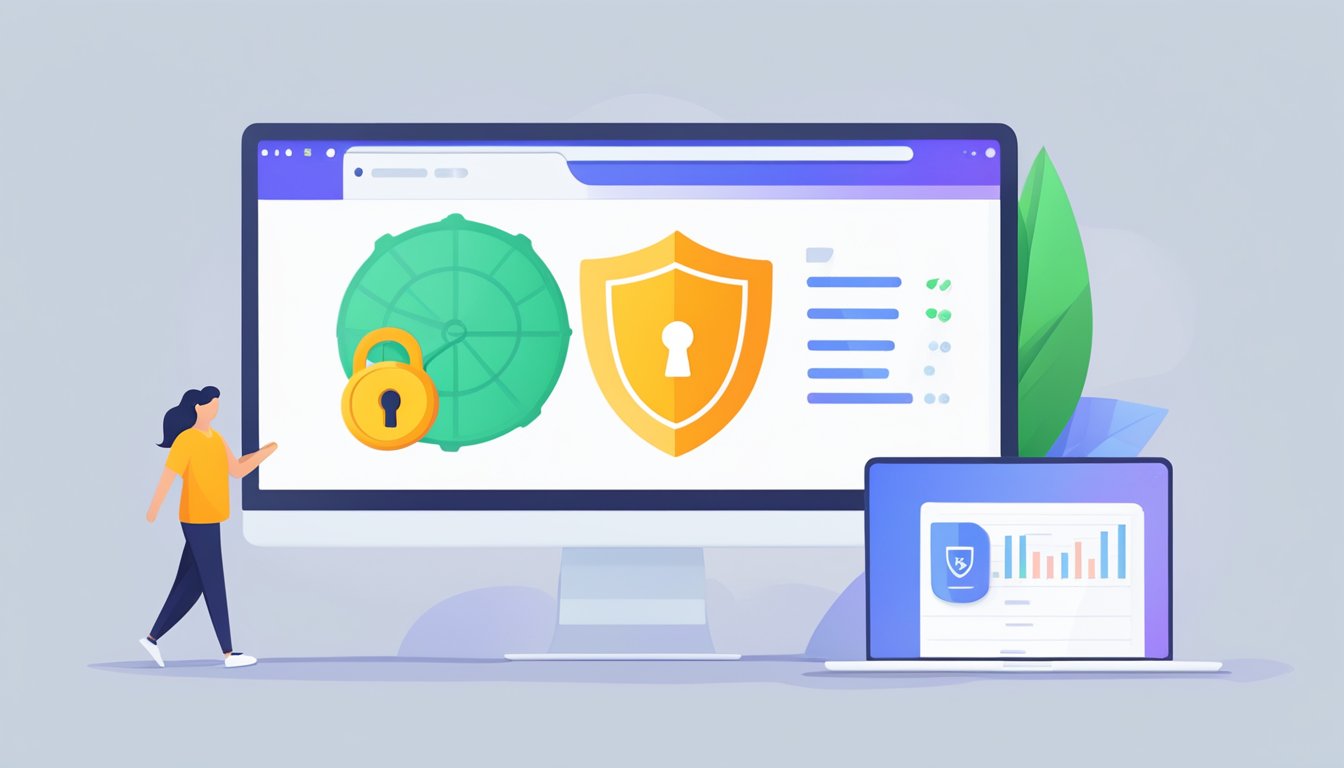When you’re online, your privacy is vulnerable. Mainstream browsers, packed with convenient features, often come at a cost: your data privacy. Information like your browsing history, location, and even identity can be tracked, stored, or sold.
That’s where privacy-focused browsers step in. They’re designed to minimize personal data collection, so what you do on the internet stays with you.
Privacy-focused browsers offer enhanced security features that go beyond what you’d find in standard browsers. They block trackers that follow your every click, encrypt your data, and even resist fingerprinting—a technique used to uniquely identify your device.
This means more control over your online privacy and less chance of unwanted third-party attention.
Switching to a privacy-focused browser doesn’t mean you’ll be browsing in the dark ages. In fact, many offer a user experience on par with their mainstream counterparts, with the added peace of mind.
Whether you’re worried about targeted ads or serious data breaches, using a browser that prioritizes your privacy can make a significant difference.
Understanding Privacy-Focused Browsers
If you’re tired of feeling like you’re being watched every time you browse the web, privacy-focused browsers are your go-to solution. They offer features that prioritize your online privacy, shielding your activities from prying eyes.
Key Features of Privacy Browsers
- Private Mode: Often referred to as incognito mode in popular browsers, most privacy browsers enhance this feature by not saving your history, cookies, or site data.
- Tracking Prevention: Blocks trackers that follow you from site to site, aiming to collect and analyze your online behavior.
- Anti-Fingerprinting: This helps minimize the amount of information websites can collect about your device, making you less unique and therefore less easily tracked across the web.
- Open-Source Software: Many privacy browsers are open-source, allowing experts to review the code for any security vulnerabilities.
Popular Privacy Browsers and Their Origins
Tor Browser: Originating from an open-source project to protect US intelligence communications online, Tor is the gold standard for private web browsing.
Firefox: Developed by Mozilla, it’s an open-source browser that has long been a champion of privacy, supporting various add-ons for enhanced security.
Brave: This newer browser quickly made a name for itself by automatically blocking ads and trackers right out of the box, promoting a faster and privacy-respecting web experience.
DuckDuckGo: Known for its search engine that doesn’t track users, DuckDuckGo also offers a mobile browser focused on privacy.
Vivaldi: A customizable browser that aims to give users more control over their browsing data and privacy settings.
Comparative Analysis: Privacy Browsers vs. Mainstream Browsers
When you’re online, your browser choice can significantly affect your privacy. Let’s see how privacy-focused browsers stack up against mainstream options like Google Chrome and Microsoft Edge.
Performance and Privacy Trade-offs
Privacy browsers are engineered to prioritize your privacy, often at the cost of speed. They typically block trackers and cookies, preventing sites from collecting your browsing data. This means that sites might load slower compared to mainstream browsers, which are optimized for performance and may not block tracking by default.
- Google Chrome: Fast, but allows certain trackers and cookies which may collect user data.
- Firefox Focus, Brave: Slower, but blocks many invasive trackers by default, protecting user privacy.
Comparing these browsers, you’ll notice trade-offs. For instance, while privacy browsers might not be as quick as Chrome, you gain enhanced privacy from reduced data collection and a lower risk of fingerprinting.
Ease of Use and Accessibility
Mainstream browsers are known for their user-friendly interfaces and are often pre-installed on devices like those from Apple or Microsoft. Privacy browsers, while accessible, may require you to manually adjust settings or add extensions to fully benefit from their privacy features.
Ease of Use:
- Chrome/Edge: Familiar layouts, integrated with respective ecosystems.
- Privacy Browsers: May have a learning curve; features like built-in VPNs add to accessibility but aren’t always straightforward.
Accessibility:
- Mainstream Browsers: Seamless integration with other company services (e.g., Apple’s ecosystem).
- Privacy Browsers: Potential compatibility issues, but offer more choices for a default search engine.
The Mechanics of Tracking and Advertising

When you surf the web, invisible eyes are often following your every click. Let’s peel back the curtain on how data collection and ads operate in the digital world.
How Trackers Collect Data
Every site you visit and every link you click can be monitored. Here’s the scoop: Trackers are like digital spies, keeping tabs on what you’re up to. They use cookies—tiny bits of data saved by your browser—to see where you’ve been and what interests you.
There’s also something called fingerprinting; this technique is sneakier, gathering info about your device and browsing habits without leaving a trace as cookies do. It’s like someone taking notes about your favorite coffee order without asking your name.
What’s more, third-party tracking is widespread. This means a website you visit might allow a different company, one that you don’t directly interact with, to track your activities. For instance, those social media trackers are notorious for keeping an eye on your online shenanigans to serve up ads they think you’ll click.
Advertising Ecosystem and Privacy Browsers
In the complex web of online advertising, ads, and trackers are thick as thieves. Here’s how it usually goes down: a search engine or website uses tracking cookies to figure out your interests. Based on that data, third-party advertisers swoop in with targeted advertising that’s supposed to be right up your alley.
Ever noticed ads chilling on nearly every website? Yup, that’s them.
But privacy-focused browsers like Avast Secure Browser or Brave are the game changers, blocking third-party cookies and putting a tight leash on cross-site tracking cookies.
Think of them as online bouncers, dictating who gets into the club and who’s left out in the cold. They don’t just stop trackers; they also often come with built-in tools like Privacy Badger that automatically detect and block sneaky trackers.
This means a quieter, ad-lite experience for you, where your data isn’t big business—it’s just yours.
Enhancing Online Anonymity and Security

When you surf the web, you’re leaving digital footprints behind. Privacy-focused browsers help you cover those tracks, shielding your online identity and safeguarding your data from prying eyes.
Advanced Tools for Anonymity
The Tor Browser is at the forefront of providing advanced tools for anonymity. It uses onion routing to encrypt your web traffic across multiple nodes, making it extremely difficult to trace your online activities.
By doing this, it’s much harder for someone to track the sites you visit or your location. Additionally, privacy browsers often include built-in VPNs (Virtual Private Networks) that encrypt internet traffic, adding another layer of security to your online presence.
- Onion Routing: Complex, multi-layered encryption
- VPN: Masks IP address, encrypts traffic
Protecting Against Fingerprinting and Malware
Aside from anonymity, these browsers also protect you against browser fingerprinting and malware.
Browser fingerprinting is a technique used to collect information about your computer and browsing habits, creating a unique “fingerprint.” Privacy-centric browsers have various countermeasures like disabling or limiting fingerprinting scripts.
- Anti-Fingerprinting: Restricts tracking scripts that collect personal data
Malware Protection: These browsers often have robust security against malicious software. By staving off crypto miners and dangerous captchas that can compromise your system, they help keep your device secure.
- Block Crypto Miners: Prevent unauthorized use of your computer’s resources
- Dangerous Captchas: Reduce exposure to malware-laden verification systems
Making the Most of Privacy Browsers

When you dive into the world of privacy browsers like Tor and Brave, it’s not just about anonymous browsing—customizing your experience plays a big part, too. Keeping your browser updated is also crucial for maintaining top-notch privacy protection.
Customization and Extensions
You’ve probably got your privacy browser installed, but the real power comes when you start tweaking it to your needs.
With browser extensions like ad-blockers and privacy tools, you can amplify your online anonymity.
For instance, Firefox offers a wealth of add-ons for cookie management and tracking prevention.
And when it comes to integrating a private search engine, you might want to make StartPage or DuckDuckGo your go-to for safeguarding your search results.
- Extensions to consider:
- Ad-blockers: Block intrusive ads and trackers.
- HTTPS Everywhere: Ensure a secure connection on websites.
- Ghostery: A tool for blocking scripts and cookies that track your activity.
Remember, though, not all extensions are created equal.
Stick with reputable ones, and you’ll steer clear of inadvertently compromising your security.
Staying Updated
To keep your privacy game strong, you’ve got to stay on top of updates—don’t let ’em slip by.
Developers of browsers like Firefox Focus are constantly patching security holes and adding new privacy-centric features.
Here’s how you make sure you’re not missing out:
- Check for updates regularly: Look in your browser’s settings or help section to learn how to update.
- Enable automatic updates if available, ensuring you’re always using the latest version with all the built-in privacy tools and fixes.
By keeping your browser current, you’re not just boosting your defense against the latest threats.
You’re also ensuring that you have access to the newest features that can enhance your browsing experience and privacy.

